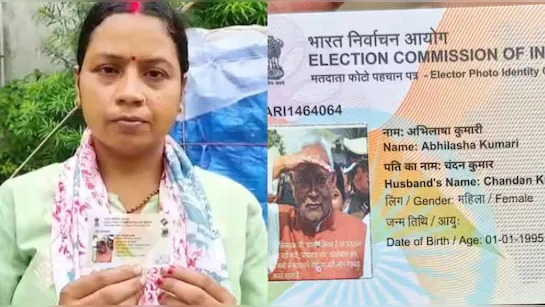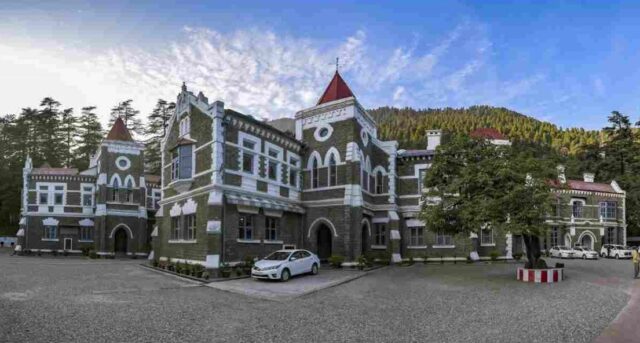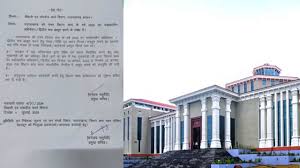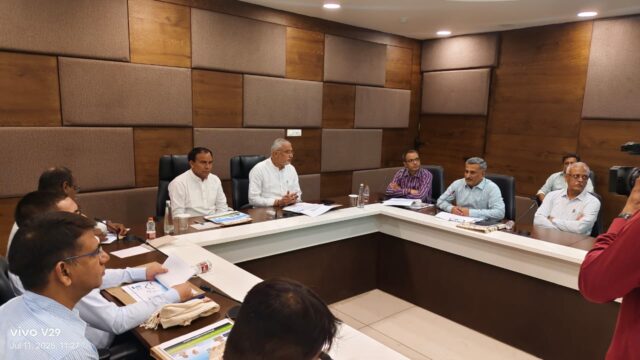Prime Minister’s address at the event on ‘Action and Solidarity-The Critical Decade’ at COP26 Summit in Glasgow
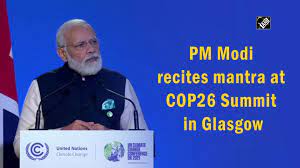
Excellencies,
My Friend Boris, Thank You for giving me the opportunity to present my views on the important issue of adaptation!
Adaptation does not get as much importance in the Global climate debate as Mitigation. This is an injustice to developing countries, which are more affected by climate change.
Climate is a major challenge for farmers in most developing countries, including India – the cropping pattern is changing, crops are being destroyed by untimely rains and floods, or frequent storms. From drinking water sources to affordable housing, all of these need to be made resilient against climate change.
Excellencies,
I have three views in this context. First, we have to make adaptation a key part of our development policies and projects. Projects like ‘Nal se Jal’- Tap water for all, ‘Swachh Bharat’- clean India Mission and ‘Ujjwala’- clean cooking fuel for all in India, have not only provided adaptation benefits to our needy citizens but have also improved their quality of life. Secondly, many traditional communities have adequate knowledge of living in harmony with nature.
These traditional practices must be given due importance in our adaptation policies. This flow of knowledge must also be included in the school syllabus so that it is passed on to the new generation. Preservation of lifestyles in compliance with the local conditions can also be an important pillar of adaptation. Third, the methods of adaptation may be local, but backward countries should get global support for them.
With the idea of global support for local adaptation, India had taken the initiative of Coalition for Disaster Resilient Infrastructure CDRI. I request all countries to join this initiative.
Thank you.

National Statement by Prime Minister Shri Narendra Modi at COP26 Summit in Glasgow
Friends,
Today I am representing amid you, the land which gave this mantra thousands of years ago-
सम्-गच्छ-ध्वम्,
सम्-व-दद्वम् ,
सम् वो मानसि जानताम्।
Today in the 21st century, this mantra has become more important, has become more relevant.
सम्-गच्छ-ध्वम् – That is, let’s move together सम्-व-दद्वम् – That is, let’s all interact togetherand सम् वो मनानसि जानताम् – That is, everyone’s minds should also be one.
Friends,
When I first came to Paris for the Climate Summit, it was not my intention to add one promise to the many promises being made in the world. I came with a concern, for the whole of humanity. I came as a representative of a culture that gave the message of ‘Sarve Bhavantu Sukhinah’ means that everyone should be happy.
And so, for me the event in Paris was not a summit, it was a sentiment, a commitment. And India was not making those promises to the world, but those promises, 125 crore Indians, were making to themselves.
And I am happy that a developing country like India, which is working to lift crores of people out of poverty, which is working day and night on the Ease of Living for crores of people, despite having 17 percent of the world’s population today, whose responsibility in emissions has been only 5 percent, still India has left no stone unturned to show that it has fulfilled its obligation.
Today the whole world believes that India is the only big economy, which has delivered in letter and spirit on the Paris Commitment. We are making every effort with determination, working hard, and showing results.
Friends,
Today, when I have come among you, I have also brought India’s track record. My words are not just words, they are cheers of bright future for the future generations. Today India is at number four in the world in installed renewable energy capacity. India’s non-fossil fuel energy has increased by more than 25% in the last 7 years.And now it has reached 40 percent of our energy mix.
Friends,
Passengers numbering more than the entire population of the world, travel by Indian Railways every year. This huge railway system has set itself a target of making itself ‘Net Zero’ by 2030.This initiative alone will lead to a reduction of 60 million tonnes of emissions annually. Similarly, our massive LED bulb campaign is reducing emissions by 40 million tonnes annually. Today, India is working fast on many such initiatives with a strong will.
Along with this, India has also given institutional solutions to cooperate with the world at the international level. As a revolutionary step in solar power, we initiated the International Solar Alliance. We have created a coalition for disaster resilient infrastructure for climate adaptation. This is a sensitive and vital initiative to save crores of lives.
Friends,
I would like to draw your attention to one more important topic. Today the world is recognizing that lifestyle has a big role in climate change. I propose to you today a One-Word Movement.
This One-Word , in the context of climate, can become the basic foundation of One World. This is a word- LIFE…L, I, F, E, i.e. Lifestyle For Environment Today there is a need for all of us to come together, together with collective participation, to take Lifestyle For Environment (LIFE) forward as a campaign.
This can become a mass movement of Environmental Conscious Life Style. What is needed today is MindFul and Deliberate Utilization, instead of Mindless and Destructive Consumption. These movements together can set goals that can revolutionize many sectors such and diverse areas such as fishing, agriculture, wellness, Dietary Choices, Packaging, Housing, Hospatility, Tourism, Clothing, Fashion, Water management and Energy.
These are topics where each of us has to make Conscious choices everyday. These daily choices of billions of people around the world will take the fight against climate change, billions of steps forward every day.
And I consider it as a movement on every ground whether on economic grounds, on scientific grounds, on the basis of the experiences of the past century, it meets every criterion. This is the path of self-realization. This is the only way to benefit.
Friends,
In the midst of this global brainstorming on climate change, on behalf of India, I would like to present five nectar elements, Panchamrit, to deal with this challenge.
First– India will reach its non-fossil energy capacity to 500 GW by 2030.
Second– India will meet 50 percent of its energy requirements from renewable energy by 2030.
Third– India will reduce the total projected carbon emissions by one billion tonnes from now onwards till 2030.
Fourth– By 2030, India will reduce the carbon intensity of its economy by less than 45 percent.
And fifth- by the year 2070, India will achieve the target of Net Zero. These panchamrits will be an unprecedented contribution of India to climate action.
Friends,
We all know this truth that the promises made till date regarding climate finance have proved to be hollow. While we all are raising our ambitions on climate action, the world ambitions on climate finance cannot remain the same as they were at the time of the Paris Agreement.
Today, when India has resolved to move forward with a new commitment and a new energy, So in such times, the transfer of climate finance and low cost climate technologies becomes more important. India expects developed countries to provide climate finance of $1 trillion at the earliest. Today it is necessary that as we track the progress made in climate mitigation, we should also track climate finance.
The proper justice would be that the countries which do not live up to their promises made on climate finance, must be pressured too.
Friends,
Today India is moving forward on the subject of climate with great courage and great ambition. India also understands the suffering of all other developing countries, shares them, and will continue to express their expectations.
For many developing countries, climate change is looming large over their existence. We have to take big steps today to save the world. This is the need of the hour and this will also prove the relevance of this forum. I am confident that the decisions taken in Glasgow will save the future of our future generations, giving them the gift of a secure and prosperous life.
Speaker Sir, I took more time, I apologize to you, but I consider it as my duty to raise the voice of developing countries. That’s why I have emphasized on that too. I once again thank you very much.



